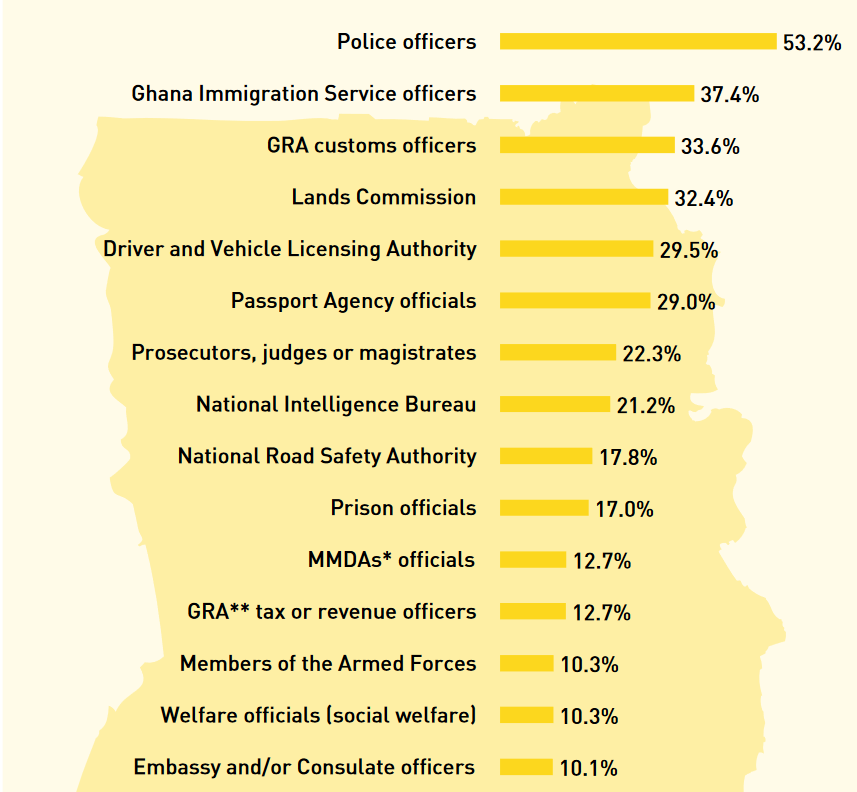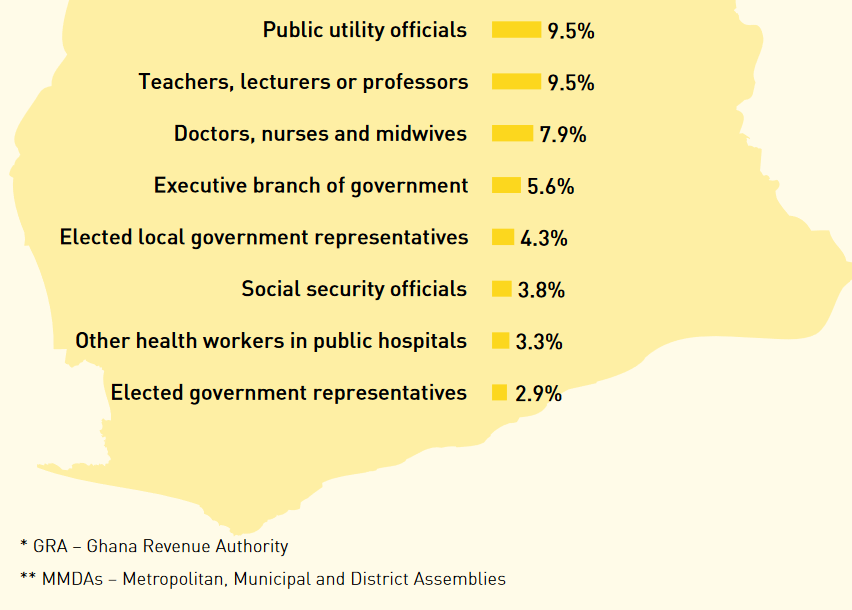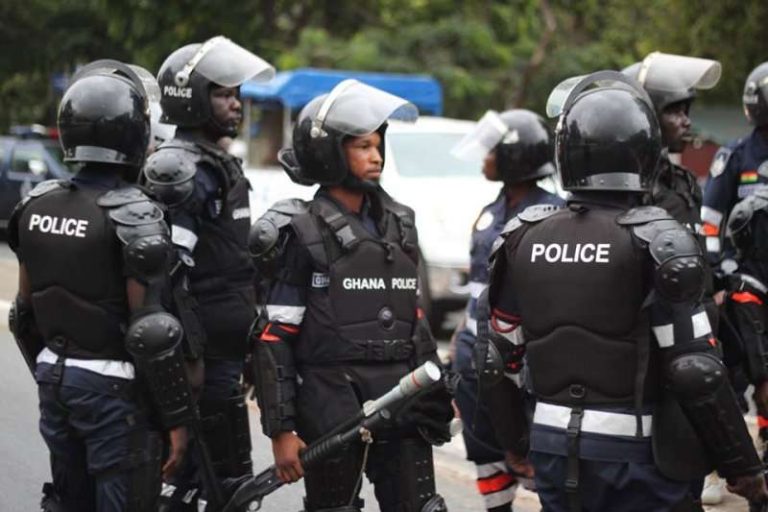The widespread problem of bribery in Ghana’s public sector has been made clear by a damning 2022 corruption report on the country.
The findings show that among all public officials, police officers have the highest prevalence of bribery at an alarming rate of 53.2%.
The survey, which was carried out by the United Nations Office on Drugs and Crime (UNODC) in collaboration with the Commission on Human Rights and Administrative Justice (CHRAJ) and the Ghana Statistical Service (GSS), offers a worrisome glimpse into the scope of corruption.


With bribery rates of 37.4 percent and 33.6 percent, respectively, Ghana Revenue Authority (GRA) customs officers and Ghana Immigration Service (GIS) officers also placed highly on the list.
READ ALSO: Sports Betting Tax Should Be Increased To 50% To Defer Lazy Youth From Betting – Caller Causes Stir
Notably, elected government officials only showed a 2.9 percent prevalence of bribery, a significantly lower rate than the general population.
There are several ways that public officials can be bribed. In Ghana, cash is used for nearly nine out of ten payments (84.8%). Even though more bribes are paid in the form of food and drink in the country’s rural areas (17.8%) than in its urban areas (10.1%), these types of payments and the exchange of one public service for another are far less frequent.
The total amount of bribes paid in cash in Ghana is close to one third of the Ministry of Education’s budget for 2021.
The average bribe in Ghana is 348 Ghanaian cedis, and it is 1.5 times larger in urban than rural areas of the nation. A total of approximately 5 billion Ghanaian cedi, or 32.9% of the Ministry of Education’s budget for 2021, was paid in bribes to public officials in Ghana in 2021, based on the estimated 17.4 million bribes that were paid there.

